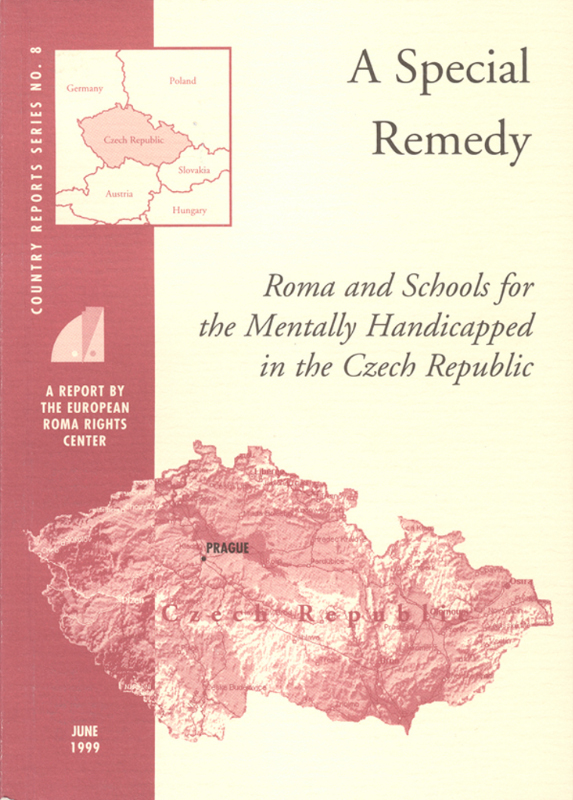A Special Remedy: Roma and Schools for the Mentally Handicapped in the Czech Republic
15 June 1999
A Special Remedy: Roma and Schools for the Mentally Handicapped in the Czech Republic
 Roma in the Czech Republic live in general exclusion from the opportunities enjoyed by the majority community. Isolated from the institutions of mainstream society, Czech Roma face discrimination in access to employment, benefits and housing, and experience day-to-day segregation as they are excluded from restaurants, swimming pools, discotheques and other public places. A horrific pattern of racially motivated violence specifically targeting Roma has followed the end of Communism, a wave of terror including numerous racially motivated killings. Anti-Romani sentiment is presently very strong. The concerns of Roma are met by an often uncomprehending, or explicitly hostile, public.
Roma in the Czech Republic live in general exclusion from the opportunities enjoyed by the majority community. Isolated from the institutions of mainstream society, Czech Roma face discrimination in access to employment, benefits and housing, and experience day-to-day segregation as they are excluded from restaurants, swimming pools, discotheques and other public places. A horrific pattern of racially motivated violence specifically targeting Roma has followed the end of Communism, a wave of terror including numerous racially motivated killings. Anti-Romani sentiment is presently very strong. The concerns of Roma are met by an often uncomprehending, or explicitly hostile, public.
Fundamental to the exclusion of Roma in the Czech Republic is an effectively segregated education system which prevents contact between Roma and non-Roma from childhood. The nexus of this segregation is the existence of a network of so-called remedial special schools (zvláštní školy) – schools for mentally handicapped children. Romani children are disproportionately placed in such schools because they underperform in tasks designed for majority Czechs, and because of the racist attitudes of schooling authorities. As a result of centuries of discriminatory and degrading treatment at the hands of authorities, some Romani parents co-operate in placing their children in remedial special schools or, in a scenario decried by many Roma and non-Roma, request that their children be placed there.
According to reasonable estimates, Roma are at least fifteen times more likely to be placed in remedial special schools than non-Roma. A student who has completed remedial special school has greatly restricted choices in secondary education compared to a student who has completed mainstream primary school. Romani children are thereby effectively condemned from an early age to a lifetime of diminished opportunity and self-respect. In addition, the segregation of Roma in inferior schools is used as constant legitimation for discriminatory attitudes and actions by members of the majority society.
This report is structured as follows: following a brief introduction to the history of Roma in the Czech lands, the problem of the overrepresentation of Romani children in remedial special schools for the mentally handicapped is presented in detail. Next, the report discusses the inferior quality of remedial special school education. The next sections of the report are divided into three chapters which show: the numerous abuses which take place in the enrollment of Romani children in remedial special schools; racist abuse in the regular basic school system as the source of traumatised Romani children; and the impossibility of transfer to a normal basic school from a remedial special school once a pupil has been enrolled there. The report then goes on to look at other aspects affecting the human rights situation of Roma in the Czech Republic as it pertains to the education system, most notably: the effect of the 1992 Act on Citizenship on the educational rights of Roma; the failure of the government to provide minority education for Roma; and the link between discrimination and abuse in the education system and the ability of Roma to claim other rights in the Czech Republic. The report concludes with a series of recommendations to the Czech government.
A Special Remedy: Roma and Schools for the Mentally Handicapped in the Czech Republic




